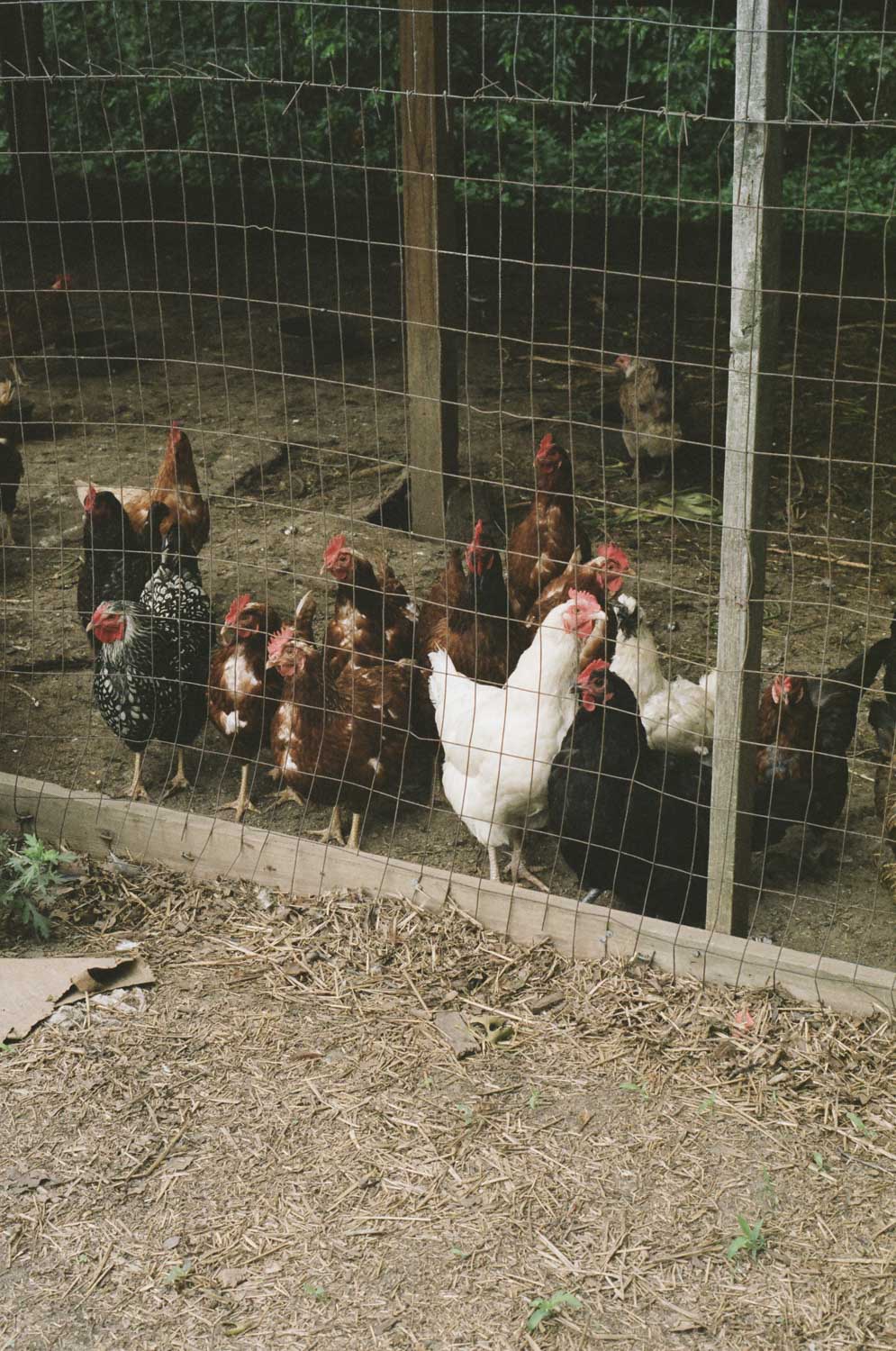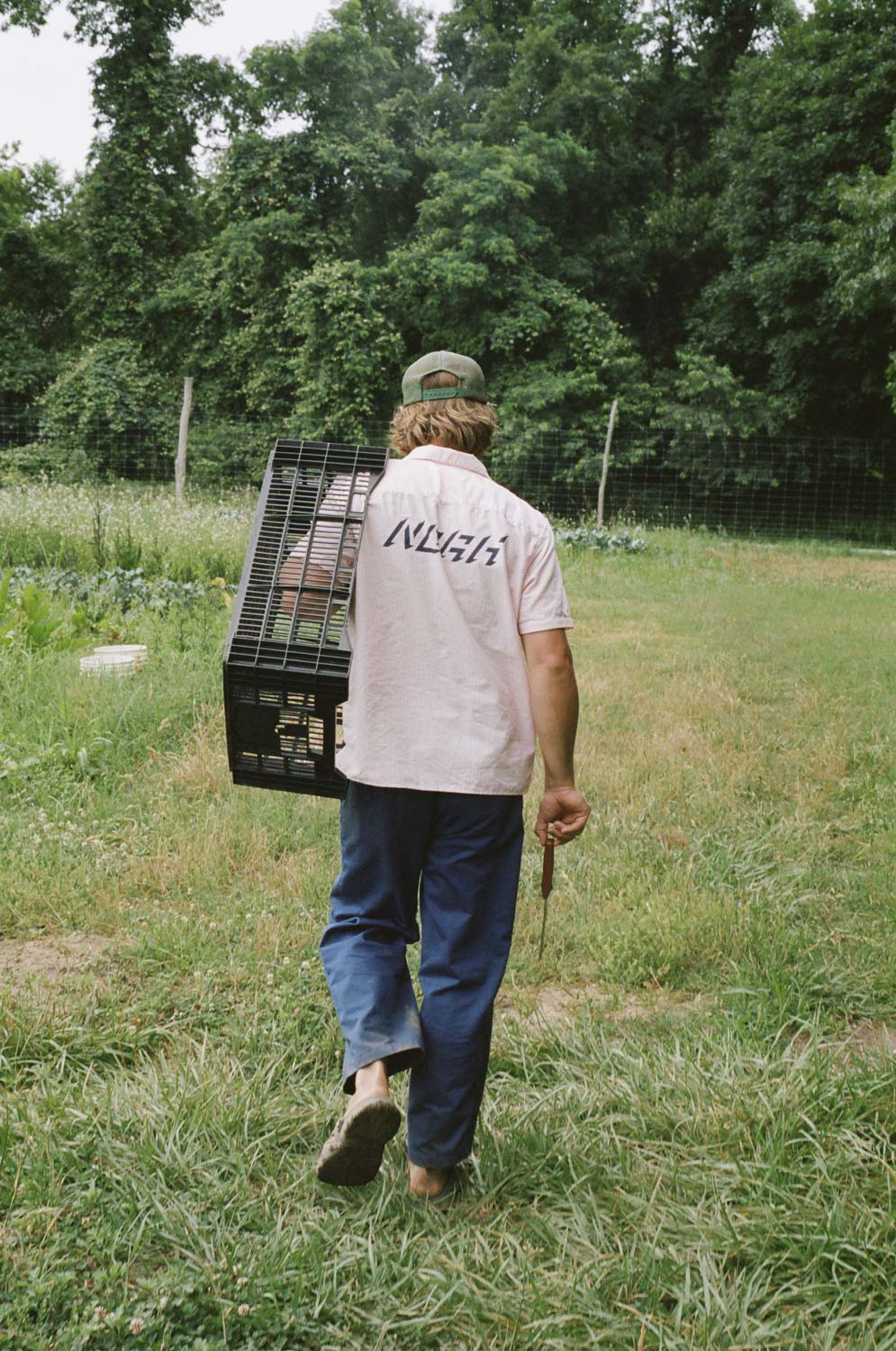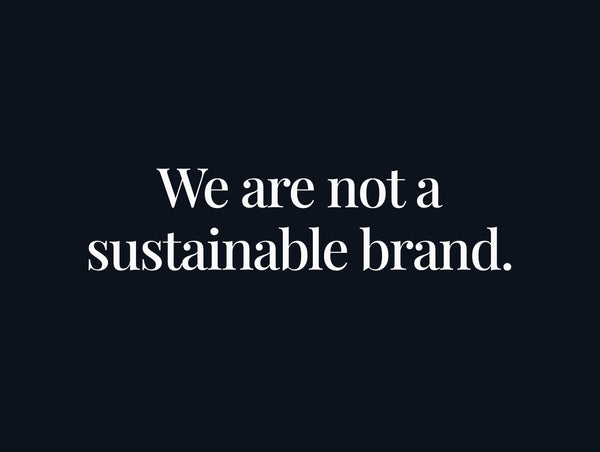

We are proud to introduce our newest Noah Field team member Sean Pilger. The Field Team is a diverse group of individuals, typically from outside our industry, whose physically active, engaged lives give them a unique perspective of the world.
Sean Pilger, runs The HOG Farm (formerly known as the Hamlet Organic Garden) in Brookhaven, New York, a rural hamlet on the south shore of Long Island.
Since 2005, Pilger has overseen the HOG's cultivation of ecologically grown vegetables, herbs, and flowers on 15 acres with the help of 5 full-time employees and 5 part time field hands. While the operation gets most of its support from CSA membership (who pay and have the option to work in the fields for a reduced price of the share of the farm's harvests) and proceeds from its farm stand, Sean and his staff have recently added a unique series of events to bolster the HOG's visibility in the Long Island agricultural community. These include Strawberry Fest, the Shuck You!!! BBQ, intimate seated dinners on the property, live music, and a winter speakeasy in their feed shed.
We are honored to welcome Sean to the Field Team, and eager to hear what's going on in his physically-engaged, environmentally-sustainable corner of the outside world.
Can you talk us through the process of how you choose the crops that are grown on the farm?
We try and challenge ourselves to grow as much as we can, basically. Over the years it's been more of an editing-out process as we strive to become more economically efficient and survive in a competitive market, which is the American Way! We get inspiration for new varieties from seed catalogs, and from some of the chefs we work with. We always try a few new crops or varieties every year to keep things exciting. Our CSA and farm stand customers are always giving us feedback, so we may decide to grow less of one crop or variety and more of another based on that. Our own experience in the field of what grows best in our climate, and what us farmers like to take home to eat, also plays a role.



Tell us about the HOG Farm.
HOG is primarily a vegetable-growing operation. We grow over 300 varieties of veggies, fruits, herbs, and flowers. We use a blend of organic, biodynamic, and ecological growing practices to grow high-quality produce, and work in concert with the native ecosystem surrounding the farm.
How did you get into farming?
I've always had a love of the outdoors, and for being self-reliant. I apprenticed on Red Fire Farm in Massachusetts the summer after graduating from Cornell's College of Agriculture and Life Sciences, and immediately fell in love with the ingenuity and passion of the people I found myself working with.

Can you talk us through the process of how you choose the crops that are grown on the farm?
We try and challenge ourselves to grow as much as we can, basically. Over the years it's been more of an editing-out process as we strive to become more economically efficient and survive in a competitive market, which is the American Way! We get inspiration for new varieties from seed catalogs, and from some of the chefs we work with. We always try a few new crops or varieties every year to keep things exciting. Our CSA and farm stand customers are always giving us feedback, so we may decide to grow less of one crop or variety and more of another based on that. Our own experience in the field of what grows best in our climate, and what us farmers like to take home to eat, also plays a role.




How does climate change affect your crops? How do you counter these changes in what is grown on the farm?
One of the changes I wasn't anticipating would occur so rapidly is an improvement in the soil quality and growing conditions. We've focused a lot of our time, energy and resources on improving the relatively poor soil we started out with. Through intensive cover cropping, green and animal manure additions, remineralization, some biodynamic practices, and natural fertilizers, we've seen great improvements over the 14 years I have been at HOG.
As for climate, every year is different, the first few years I was here, 2005-2008 or so, were very, very dry, so we invested heavily in irrigation infrastructure. Then we learned about how much rain crops can actually soak up during some heavy rainfall years. There was one winter in 2012 where it never got cold and we were harvesting crops regrowing in March from the previous fall. As recently as his past winter, we've had some extreme cold that cost us our Dahlia Bulb collection. So if I’ve learned anything as a farmer, it's that weather is unpredictable and you have to have a lot of irons in the fire to cover potential losses, and take advantage of potential bumper crops. Overall, there seems to be a trend toward later, warmer falls and longer, colder springs.


What about balancing the different fields to keep the soil healthy?
We rotate different crops to different fields every year to balance out nutrient demands, and to break cycles of pests, weed pressure, or disease. We use a diverse range of cover crops to protect the soil in fields that aren't in production, which also informs what and when we plant. We recently began focusing production into more concentrated acreage so we can leave more of our land fallow for a full year (or more) to help build up organic matter.



Is there anything us non-farmers can do to help our planet? Maybe something simple in our daily routine that we could change that would have a profound effect?
Well, I believe this objectively (and selfishly as a farmer), but it is very important to shop and buy local. Find a farm near you and eat their food. That is what the farmer depends on to make a living, and we all need healthy (not to mention delicious) food to live.
Otherwise, minimize any use of packaging and waste, reuse anything you can, and sort your recycling. Trash is an illusion. None of it disappears. We work really hard at HOG to minimize our waste. We don't use plastic mulch in the fields. We use durable, long-term irrigation drip hoses, biodegradable packaging or no packaging at all. We're a little obsessed, but I couldn't stand to do it any other way growing up and living in the shadow of the Brookhaven Landfill.
And it goes without saying, but exercise the power of your dollar and support companies that have an ethical practice and standpoint in the way they do business.

Have you had any environmental adversities or challenges since the start of the HOG Farm? Have you had to recalibrate or re-do anything in terms of how the farm operates to combat these challenges?
We have been lucky to have had no climate catastrophes at the farm. We've had some slight damage from hurricanes, but nothing substantial. I am always trying to do what I can to keep things as environmentally conscious as possible within the confines of a very tight budget. We have solar panels we use for some of our electricity, and two tractors which run on batteries charged from the panels. We recently got hooked up to the grid to supply electricity to our walk-in cooler. The costs and logistics of running that on solar didn't add up for us, but long-term I love the idea of rebuilding a larger barn with solar panels and a grid-tied power system so we could run our meter backwards.


Can you tell us what’s next for the HOG?
Well, I just mentioned a barn, which is really what I'm working towards. We currently don't have any enclosed buildings, hot and cold running water, restrooms, etc. We would love to have a facility where we could wash and pack our produce, prepare value-added foods like canned tomatoes, fermented krauts and kimchis, and do other cooking projects. We would love to build it using as much green technology as possible, solar panels, composting toilets, etc.
While we already have wonderful events at the farm, with actual infrastructure we could really make the connection between growing food and eating it a bigger part of this community.
Thanks for curiosity and taking the time to listen!
The HOG Farm is located at 319 Beaver Dam Rd. in Brookhaven, and its farm stand is open to all on Mondays, Wednesdays, and Fridays from 3:30 pm - 6:30 pm and Saturdays from 9:00 am - 1:00 pm.

















